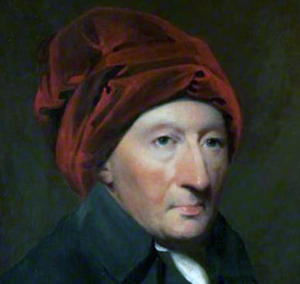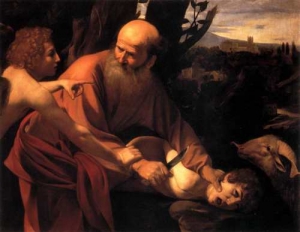I hope that the points which follow will serve to place Reid, and by implication, Old Princeton, in a more objective and favorable light, and as a consequence, help Reformed Christians recover confidence in the proper use of Christian evidences when engaging . . . Continue reading →
Apologetics
Thomas Reid’s Common Sense Philosophy Part 4: The Decline of SCSR
Although more influential during his lifetime than Hume, one question lurking throughout this discussion is why Reid and SCSR fell into such relative obscurity so quickly if common sense is self-evident? The obvious reason is that Reid’s Inquiry was completely overshadowed soon . . . Continue reading →
Thomas Reid’s Common Sense Philosophy Part 3: On Perception
Kant argued that what we perceive with our senses is not the thing in itself, since sense data must be mediated through our a priori categories. We all may see the same object which exists independently of our minds. Yet, our experience . . . Continue reading →
Thomas Reid’s Common Sense Philosophy Part 2: On First Principles
The great conundrum faced by philosophers since time immemorial is the question “how do we know what we know?” This question falls under the subcategory of philosophy known as epistemology. Those who contend that all human knowledge arises through our senses are . . . Continue reading →
Who Was Thomas Reid and Why Does His “Common Sense” Philosophy Still Matter? (Part 1)
Thomas Reid (1710–1796) is best known as the founder and principal philosopher of “common sense,” or more properly, “Scottish Common Sense Realism” (SCSR). Reid was highly respected and quite influential in the days of the eighteenth-century Scottish Enlightenment, but the popularity of . . . Continue reading →
Are We All Really Abraham’s Children?
Something I heard recently led to me think about the claim that is frequently made about the three great Western religions: Judaism, Christianity, and Islam. We are all frequently said to be “people of the book,” and just as frequently said to . . . Continue reading →
Christian: Is Your View Of Faith Mormon Or Christian?
Back in 1829, Joseph Smith claimed that God appeared to him saying: Cast your mind upon the night that you cried unto me in your heart, that you might know concerning the truth of these things; did I not speak peace to . . . Continue reading →
You Need Not Be A Jerk While Defending The Faith
In his first epistle, the Apostle Peter famously said that followers of Jesus should “always be prepared to give an answer to everyone who asks” (1 Pet 3:15). Throughout the long history of the church, this has been the primary prooftext for . . . Continue reading →
God, Philosophers, and Evil
A reader named David wrote me to ask about how to answer a friend who is “struggling with Calvinism,” because “he has not heard an explanation of the fall (and ultimately reprobation) that goes beyond the idea of a ‘blessed fall.’ In . . . Continue reading →
Sodom, Jude 7, Biases, And How To Interpret The Bible
On 20 September 2021, T. E. Bunch et al. published what became a hotly (pun intended) controverted article, which claimed to have found evidence of a “Tunguska sized airburst” over Tall el-Hammam, a Middle Bronze Age city in the Jordan Valley near . . . Continue reading →
Recovering The Art of Persuasion
“Of all things that human beings do,” Mortimer Adler once observed, “conversing with one another is the most characteristically human.” Unfortunately, in our day, we no longer have many opportunities for meaningful conversations. Virtual conversations abound—we watch talking heads on television or . . . Continue reading →
Muether on Van Til: A Review
It is hard to overstate the influence of Cornelius Van Til on confessional and conservative Reformed theology since the early twentieth century. I will use myself as an example because I think that what I experienced is fairly representative of what others . . . Continue reading →
Why It Is Reasonable To Believe In Jesus’ Resurrection
The resurrection is central to the Christian faith, as the apostle Paul tells us, For if the dead are not raised, neither has Christ been raised: and if Christ has not been raised, your faith is meaningless; you are still in your . . . Continue reading →
Review: Lane Tipton’s The Trinitarian Theology of Cornelius Van Til
We live in an age that has lost the plot. In this case it is not the world at large, but rather the broadly Protestant/evangelical world in the West—many things taken almost for granted by previous generations of Christians are met with . . . Continue reading →
The Point Of The Rich Man And Lazarus Might Not Be What You Think (Pt 2)
According to Josephus and three of the four Gospel writers, Caiaphas was Israel’s high priest during the days of Jesus’ earthly ministry.7 Further, as it turns out, he was the son-in-law of Annas, who had also reigned as high priest some years . . . Continue reading →
Horton: What Makes Faith Reasonable Is Its Object
To hear many characterize faith it might seem irrational but is it? Continue reading →
The Point Of The Rich Man And Lazarus Might Not Be What You Think (Pt 1)
In Luke 16, Jesus tells a fascinating story about two contrasting characters: one who lives in luxury, and the other who lives in extreme poverty and, unlike all the other parables Jesus tells, in this particular narrative, one of the characters is . . . Continue reading →
An Outstanding New Podcast: The Humble Skeptic
Shane Rosenthal is a former student, an old friend, and was the long-time producer of the White Horse Inn. He has a new podcast and it is outstanding. There are a lot of podcasts from which to choose but you only have . . . Continue reading →
How Error Seeps Into The Church
When error is admitted into the Church, it will be found that the stages of its progress are always three. It begins by asking toleration. Its friends say to the majority: You need not be afraid of us; we are few, and . . . Continue reading →
On The First Day Of The Week
Now on the first day of the week cometh Mary Magdalene early, while it was yet dark, unto the tomb, and seeth the stone taken away from the tomb. She runneth therefore, and cometh to Simon Peter, and to the other disciple . . . Continue reading →









